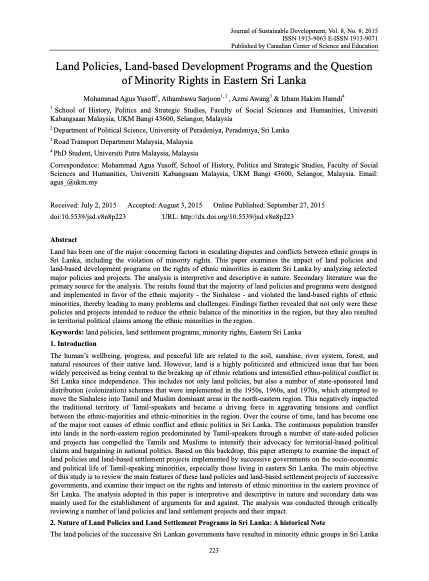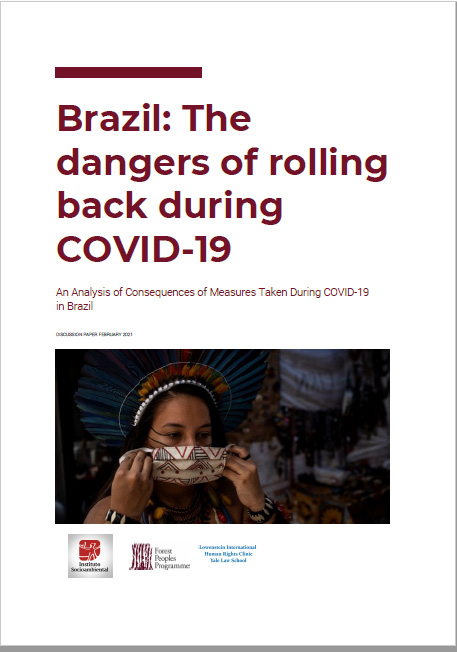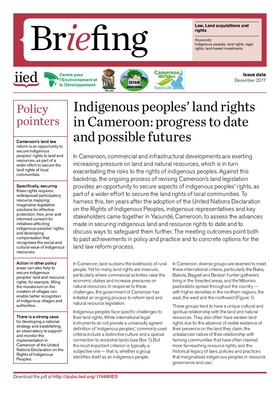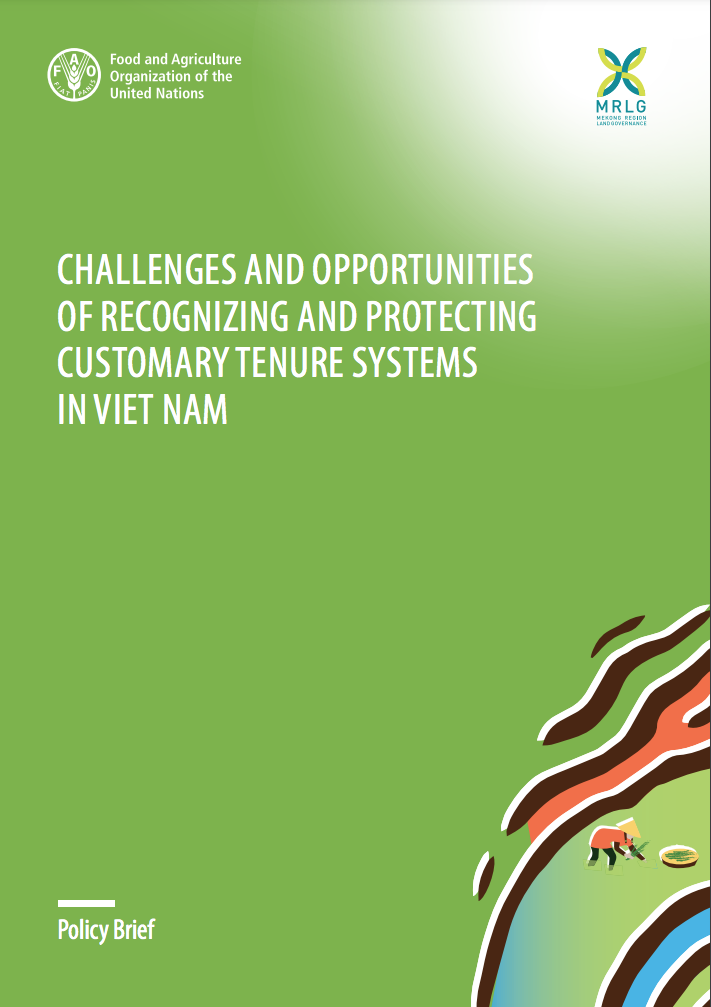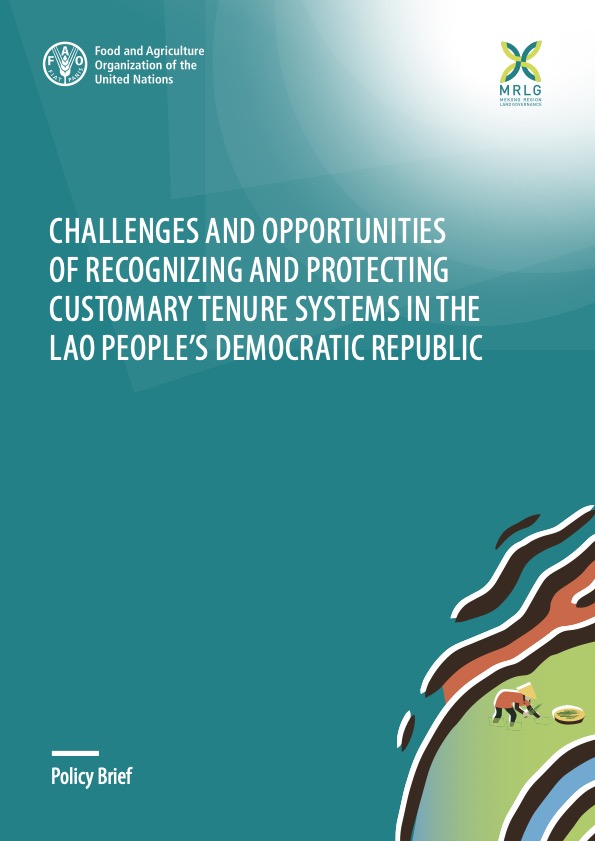Land Policies, Land-based Development Programs and the Question of Minority Rights in Eastern Sri Lanka
Land has been one of the major concerning factors in escalating disputes and conflicts between ethnic groups in Sri Lanka, including the violation of minority rights. This paper examines the impact of land policies and land-based development programs on the rights of ethnic minorities in eastern Sri Lanka by analyzing selected major policies and projects. The analysis is interpretive and descriptive in nature. Secondary literature was the primary source for the analysis.

